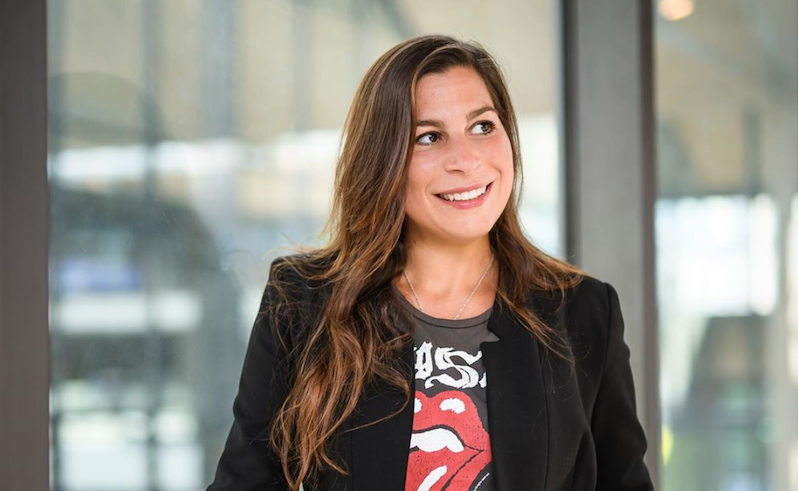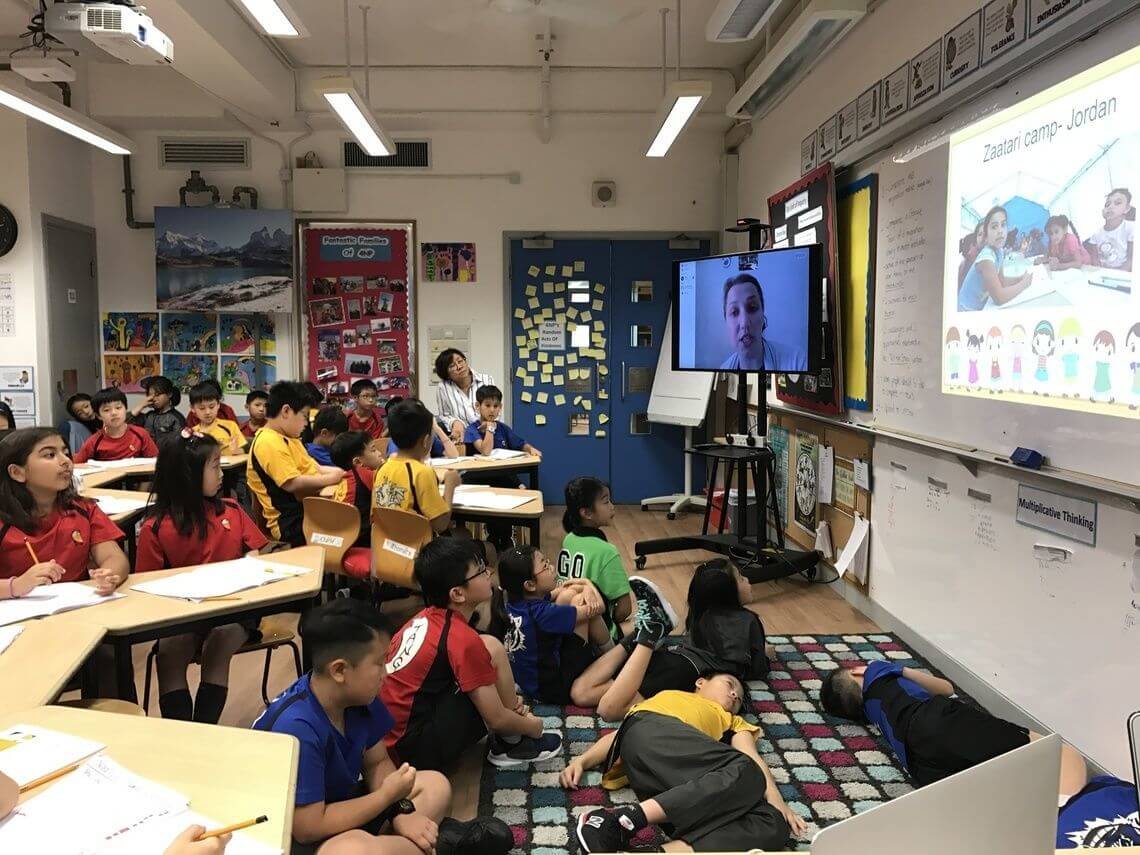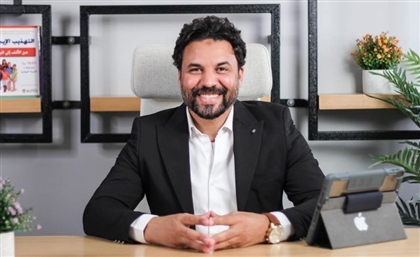Why An Entrepreneurial Mindset Is Key to the Refugee Crisis, Especially in the COVID Era
Between startup and NGO, NaTakallam co-founder Aline Sara on the goldilocks zone of social entrepreneurship.

No field has been immune to the global economic hurricane that’s accompanied the COVID-19 outbreak. Least of all are non-profits and non-governmental organisations (NGOs), built as they are on the fickle-natured foundation of donor-based funding. As recently reported in the New York Times, “donors are stretched in many directions, preoccupied with their own problems, and much less flush than they were two months ago.”
The ongoing global refugee crisis is no different, and is experiencing for the first time in recent years a complete overshadowing of funding priorities. Simply speaking, more donors are holding on to their money, and the priority for the funding that is available is going to COVID-19 responses. It’s an understandable shift, no doubt, but it does lay bare the glaring fragility in the NGO-led approach to helping refugees.
We've doubled our sales in one-on one classes [with coronavirus lockdowns], but it's not all blue skies.
“Because we're not relying on funding that is going to run out right now,” says Aline Sara, co-founder of NaTakallam, “because a lot of refugee funding is currently compromised - and COVID funding is taking over - we're not actually dealing with the same challenges that NGOs might be dealing with.”
NaTakallam is an award-winning online language platform that connects refugees to language students around the world, where the refugees act as tutors to help students pick up local dialects. Since 2015, nearly 160 displaced persons have taught over 6,000 individuals in more than 90 countries, self-generating over $750,000 in direct income.
Though now an award-winning entrepreneur, Sara’s journey into the world of social enterprise was far from straightforward. “My background is journalism and human rights,” she says. “I didn't know what social entrepreneurship meant. And when I thought of startups, I thought of big tech, Silicon Valley companies that are mostly driven by profit rather than impact and social change."
We caught up with the advocate-turned-founder to discuss how, over the past five years, she’s seen the overlap between the qualities of a great startup, and the success of NaTakallam.
Because we're not relying on funding that is going to run out right now, because a lot of refugee funding is currently compromised - and COVID funding is taking over - we're not actually dealing with the same challenges that NGOs might be dealing with.
The Saving Grace of Sustainability
NaTakallam started, Sara recounts, from a pragmatic consideration. Living in New York in 2014, Sara couldn’t find affordable options to practice her Arabic, particularly because she wanted to focus on colloquial dialect instead of fusha, or Modern Standard Arabic.
At the same time, global attention was finally on the Syrian refugee crisis, particularly in Sara’s native Lebanon, where one million refugees didn’t have access to work permits. Sara honed in on both the need and opportunity of the situation, and developed NaTakallam, at first with a basic model of one-on-one Arabic language practice over Skype with Syrian refugees.
“We’re living in the era of the digital economy,” says Sara of her first realisations, “and through this lens, refugees can (at times and within a certain extent) transcend local limitations. The idea was to leverage this online gig economy for refugees to become tutors, catering to people’s language needs around the world, who want affordable, flexible language practice, particularly to work on speaking skills.”

NaTakallam wasn’t a quick-fix, a band-aid, or a charity funnel. It offered a simple, minimum-resource way for refugees to both supplement their income and make connections around the world. “Aid is good in emergency contexts, and of course has its values in other situations too,” explains Sara, “but the refugee crisis is protracted. We're going into years of displacement for refugees.”
I've actually pitched NaTakallam in certain contexts, where people had it so solidly in their minds that the refugee is the person who needs to be helped, that they would look at me and say 'so the Americans are teaching English to the refugees?'
Though they did receive grant money to help fund initial growth, NaTakallam has been based for the most part on revenues. Not being overly-bound to the input or oversight of either donors or investors has done more than shield the enterprise from the fickle fluctuations of global funding patterns: it has allowed it to grow independently, realistically, and sustainably.
Now, it offers one-on-one Arabic classes in Syrian, Iraqi, Palestinian, Egyptian, and Yemeni dialects; French classes with refugees from the Democratic Republic of Congo, Burundi, and Guinea; Persian with Iranian and Afghan refugees; and Spanish with Venezuelan and Central American refugees. It has also expanded to offer professional translation services in 9 languages, as well as curated programs for schools and organisations.
The Agility Most NGOs Can’t Pull Off
NaTakallam’s simple, scalable model also highlights its opportunity in the COVID-19 era. Fundamentally a digital platform, it’s seeing a substantial growth in its one-on-one classes, with more people at home and even old NaTakallam students now having the time to return to their language practice. It has, however, also seen a sharp drop in its classroom programs and translation services.
60% of NaTakallam's tutors now rely on the service as their source of income
“We've doubled our sales in one-on one classes. It's not all blue skies, though; we have had to pivot our other departments to adapt to the fully digital space, which we can do, which is what startups are born to do. This quick type of prototyping, reacting, changing, which is not something NGOs are comfortable or able to do as much.”

By their nature, NGOs are bound to more than most startups. Non-profit work, particularly the humanitarian sector, is notoriously risk averse, demobilised by accountability, and bogged down by bureaucracy, giving rise to the terrifying title of ‘humanocrat’.
“NGOs, especially the very large international NGOs and institutions, typically operate in a much more rigid framework,” explains Sara, “with donors and implementation frameworks that have been set in advance. It's not typically a versatile operation.”
The Problem with the Word ‘Refugee’ Itself
Sara makes an oft-echoed point, that the word ‘refugee’ has become a loaded one. Though the past few years have seen myriad initiatives and trends to shift the narrative, the connotation remains one of passivity and general helplessness, a connotation that is so ingrained that it impacts many people’s knee-jerk response to NaTakallam.
“I've actually pitched NaTakallam in certain contexts,” recounts Sara, “where people had it so solidly in their minds that the refugee is the person who needs to be helped, that they would look at me and say 'so the Americans are teaching English to the refugees?' It was so locked into their heads.”
NGOs, especially the very large international NGOs and institutions, typically operate in a much more rigid framework...It's not typically a versatile operation.
NaTakallam flips the general assumption of ‘refugee’. Though the money does go to those in need, it’s not a charity payment. The exchange is one of service delivery - a tutor, paid by the hour, teaching a student - and so largely does away with the negative power dynamics that dominate in traditional aid settings.
NaTakallam’s refugees - in the broader sense of displacement, not the nationally-defined legal label of ‘refugee’ - are not the passive recipient of monetary help, but the active provider of their own livelihood. “You lose your sense of worth if you don't work, if you don't earn your income,” elaborates Sara. “So this is also a very rewarding job. You're teaching your own language, sharing your own story and culture."
Breadth of Impact Is Not Depth of Impact
“Very often, and this will be in both the investor and the donor spaces, people will look at the number of refugees we're supporting. And they don't find that compelling enough. Of course, if we wanted to, we could say that we've got 2,000 refugees on our platform.”
But that’s not the point, says Sara, who explains that she doesn’t want the model of startups who count their number of users by how many people have put their names into an app. In a similar vein, global aid programmes’ obsession with maximizing impact in numbers has been far from helpful in actually understanding the good (or harm) being done.
“We prefer limiting our onboarding, and trying to make sure the refugees who are working for us are getting close to minimum wage in their host country,” explains Sara. By alternatively measuring their impact in terms of depth, NaTakallam has found that 60% of its tutors are relying on the service as their source of income, 40% have used it to sustain themselves while pursuing education, and 30% have found professional and resettlement opportunities through NaTakallam’s networks.
By harnessing the sustainability, agility, agency, and depth of the entrepreneurial mindset, and combining them with an impact-first model, NaTakallam presents a mode of operation that might prove most effective, especially as humanitarian response - perhaps irrevocably - is changed by the new economy of COVID-19.
You can learn more about NaTakallam here.






















